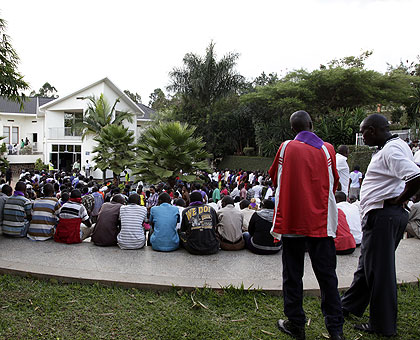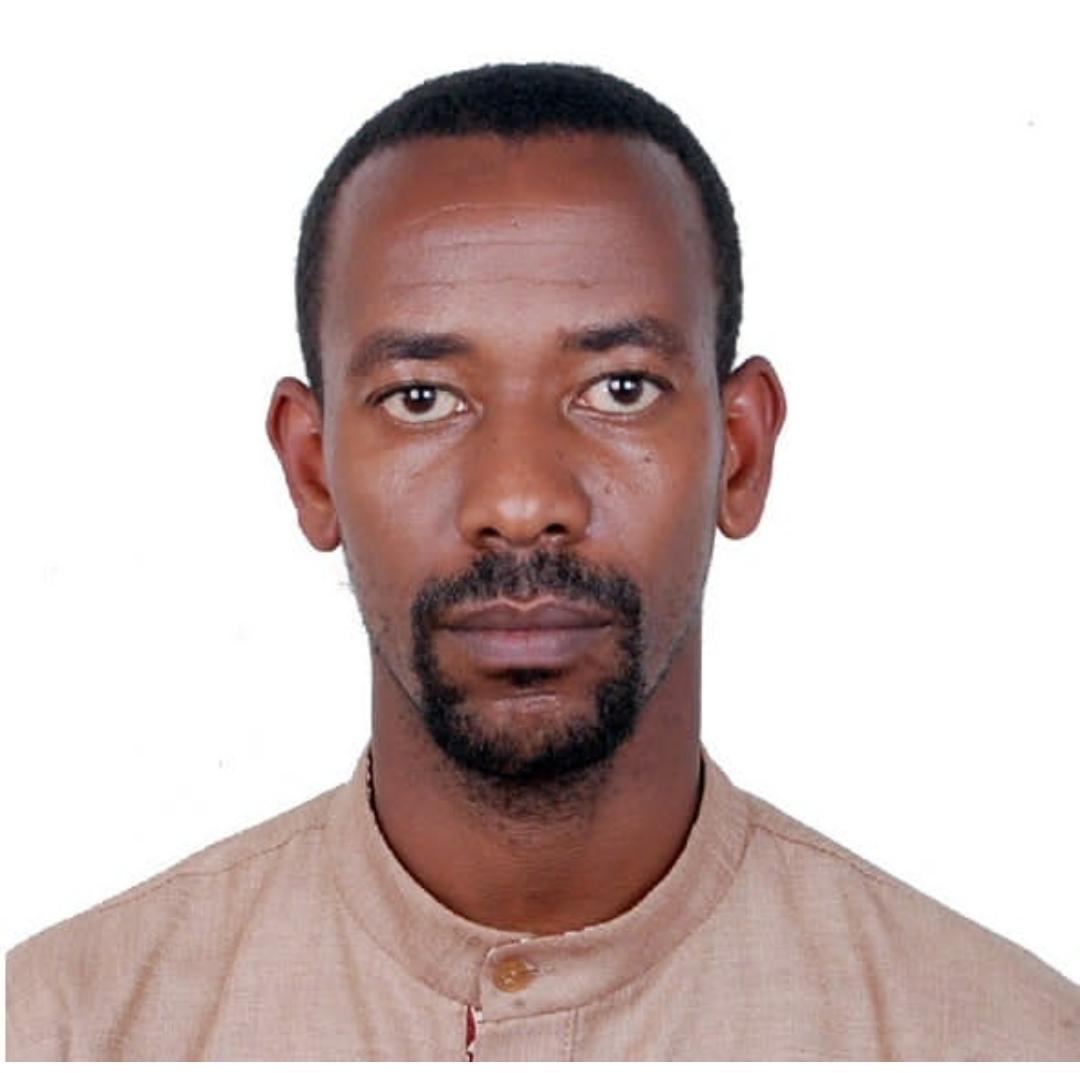Genocide survivors and other Rwandans have reacted with shock to the decision by an appeals bench at the International Criminal Tribunal for Rwanda (ICTR) to acquit yet more high profile individuals accused of playing a key role in the 1994 Genocide against the Tutsi.


Genocide survivors and other Rwandans have reacted with shock to the decision by an appeals bench at the International Criminal Tribunal for Rwanda (ICTR) to acquit yet more high profile individuals accused of playing a key role in the 1994 Genocide against the Tutsi.
Survivors and Rwandans in general view the pattern of decisions to overturn or significantly reduce initial verdicts rendered by the same court against several former political and military leaders as a great disappointment to a nation that this year marks the 20th anniversary of the Genocide.
Critics have in particular singled out the president of ICTR Appeals Chamber, Theodor Meron for controversially overturning a series of rulings by the lower chamber, thus resulting in the release of or significant reduction in sentences for individuals who were in power at the time the Genocide took place, killing more than a million people in its wake.
Judge Meron yesterday ordered the release of the former chief of staff for gendarmerie, Maj. Gen. Augustin Ndindiliyimana, and the commander of the reconnaissance battalion, Maj. Francois-Xavier Nzuwonemeye, who were both accused of actively training, arming and commanding the Genocide militia.
The appeals bench also reduced the sentence of Capt. Innocent Sagahutu, from 20 to 15 years. Sagahutu was second-in-command of the Reconnaissance Battalion of the Rwandan Army (FAR) responsible for Company A of the same battalion.
The court had in May 2011 sentenced Ndindiliyimana to 11 years imprisonment for genocide crimes, while Nzuwonemeye and Sagahutu had both been sentenced to terms of 20 years for crimes against humanity and war crimes.
"These are men who planned the massacre of our people. Now the ICTR has outrageously allowed them to walk scot free,” said Egide Nkuranga, the vice president of Ibuka, an umbrella organisation for Genocide survivors.
He said survivors’ efforts to see justice delivered had consistently been blocked by ICTR judges, especially judge Meron.
"We have provided sufficient evidence about these men’s role in the Genocide but what happens in Arusha is that criminals have more rights than the victims,” said Nkuranga.
The Ibuka official accused Judge Meron of playing politics instead of dispensing justice.
Meanwhile the ICTR chamber said it would hand down its decision on a fourth defendant, former army chief Augustin Bizimungu, at a later date. The four men were in a trial code-named Military II.
Bizimungu had been sentenced to 30 years in prison for crimes of genocide, crimes against humanity and war crimes.
The Spokesperson of Rwanda’s National Public Prosecution Authority, Alain Mukuralinda, regretted the decisions, saying it’s unfortunate they cannot be appealed.
"In our subsequent review, we may find evidence linking the Presiding Judge to these alarming acquittals and would not hesitate to make our position known,” said Mukuralinda.
Recent reports indicated that Judge Meron, 83, has greatly influenced court decisions by exerting undue influence on judges to let high-profile war crimes suspects go free.
Last year, a leaked letter written by a Danish judge, Frederik Harhoff, addressed to 56 people from different authorities, indicated that Meron had exerted "persistent and intense” pressure on his fellow judges to acquit high-profile suspects.
Meron has also previously served as a judge at the ICTY in the Hague.
Last year, Florence Hartmann, former spokeswoman for the former prosecutor of the ICTY, asked the UN Security Council to open an investigation into Meron following the allegations made in Harhoff’s letter.
Hartmann said that the Security Council had no choice but to launch an investigation after Meron was accused of being behind the acquittals of Croatian generals and Serbian officials.
"Judge Harhoff specifically indicates a violation of the Statute of the Tribunal by Theodor Meron. By statute, judges must be independent in making their decisions,” said Hartmann.
She did not rule out the possibility of revision of the verdicts, if it is determined that independence and impartiality of judges was not respected.
In the past, the American judge was on the bench that acquitted Protais Zigiranyirazo in November 2009 and, later on, Justin Mugenzi and Prosper Mugiraneza.
Meron also sat on the appeals bench that considerably reduced initial sentences for top Genocide architect Theoneste Bagosora and Anatole Nsengiyumva in 2011.
All these men were key figures in the genocide machinery that lost power when the then RPA rebels took Kigali and effectively ended the Genocide on July 4, 1994.
In the recent past, there have been calls for Meron to step down from the ICTR cases and reviews of the decisions he had been party to.
"It’s only appropriate that he ceases to take part in ICTR cases and have retrials for cases in which he is believed to have greatly influenced the other judges,” Jean de Dieu Mucyo, the Executive Secretary of the National Commission for the Fight against Genocide (CNLG), said last year.
To date, the UNSC has done nothing about the complaints against judge Meron.
With the UN-backed tribunal due to close shop this year, many say its legacy will remain highly questionable.
So far, six former ministers who served in the interim government led by the Genocide Jean Kambanda, have been acquitted despite a detailed guilty plea entered by Kambanda on the role of his government in the most vicious killings known to man.
ICTR was established in 1995 to try key masterminds of the Genocide against the Tutsi, but many among the architects of the killings are either still at large or were acquitted by the court.
Critics accuse the court of benefiting only its highly paid technocrats while Genocide survivors continued to wait for justice in vain.
The court has spent close to US$ 2 billion (approx. Rwf1.5 trillion) on 75 cases in a period spanning nearly two decades.
Fact File
Maj. Gen. Augustin Ndindiliyimana
From 1973, Ndindiliyamana held ministerial positions (notably as Minister for Youth and Minister of Defence) under the regime of President Habyarimana. On 2 September 1992, he was named Chief of Staff of the National Gendarmerie, a position which he held until July 1994. In this capacity, he exercised authority over the entire National Gendarmerie. The National Gendarmerie was in charge of maintaining public order and peace as well as the observance of the laws in force throughout the country. Moreover it had the duty to assist anyone in danger.
Maj. Francois-Xavier Nzuwonemeye
In 1993, Nzuwonemeye exercised the function of Commander of the 42nd Battalion. He was subsequently appointed Commander of the Reconnaissance Battalion within the Rwandan army. He held this post until July 1994. In this capacity, he exercised authority over all the units of this battalion.
The reconnaissance battalion allegedly tracked down, arrested, sexually assaulted, and killed then Prime Minister Agathe Uwilingiyimana.
Capt. Innocent Sagahutu
During the Genocide, Capt Sagahutu was second-in-command of the Reconnaissance Battalion (RECCE) and commander of this battalion’s A company, serving under battalion commander Maj. Nzuwonemeye.
He and other officers are accused of conspiring to exterminate Tutsis and helped to train the interahamwe militia.
Sagahutu allegedly directed participated in the distribution of weapons and preparation of lists of people to be eliminated.
Prosecution charged him with eleven counts; conspiracy to commit genocide, genocide or complicity in the alternative, various crimes against humanity including extermination, rape and murder, and war crimes.


